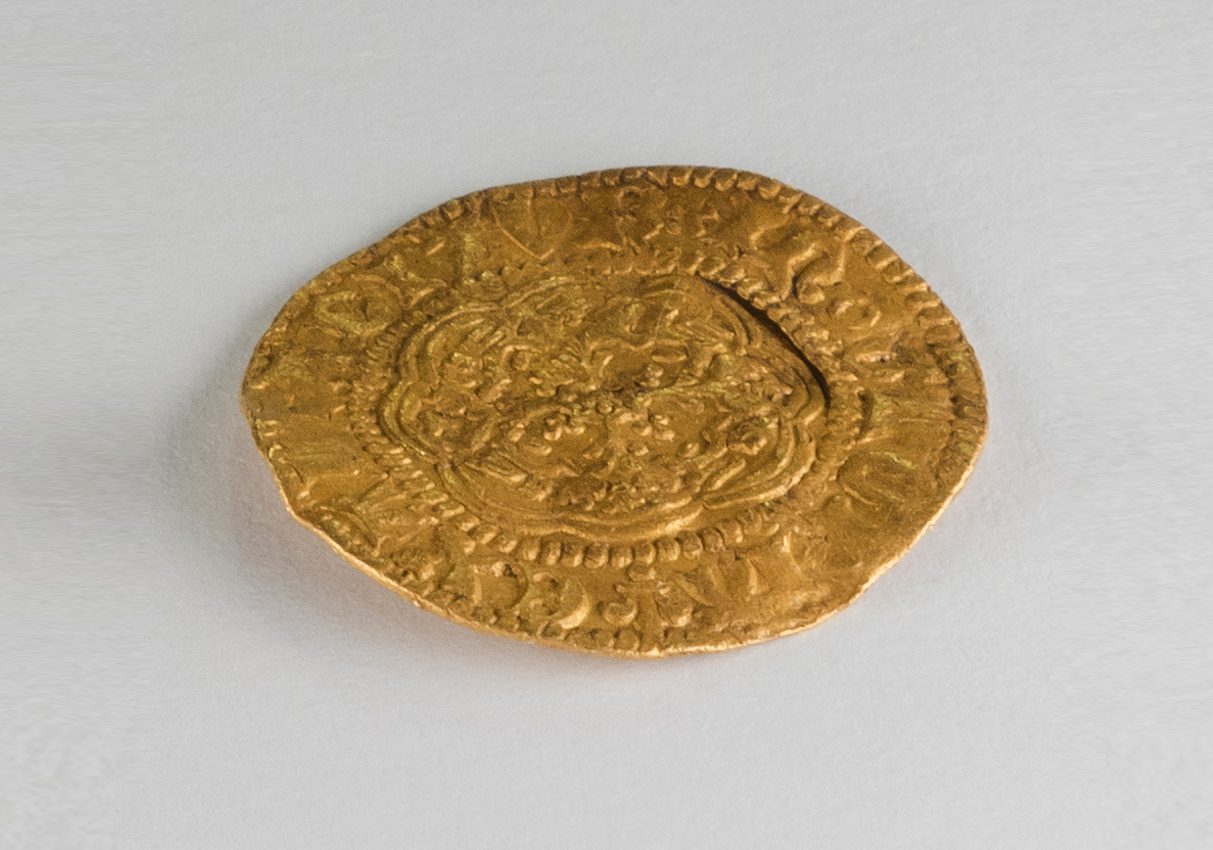A gold coin discovered within Newfoundland’s southern coast may be the oldest coin found in Canada.
The coin was uncovered at an undisclosed archaeological site (to protect the location from treasure hunters) by history enthusiast, Edward Hynes, who photographed the find and reported it to the Provincial Government.
Under the Historic Resources Act for Newfoundland and Labrador, the finder of an archaeological object or a significant fossil is required by law to report the discovery. Unless the finder is authorised with a permit, the removal of an object from the archaeological context is also a crime.
The coin predates the first documented European contact with North America since the Vikings, which Paul Berry, former curator of the Bank of Canada’s Currency Museum has dated to between AD 1422 and 1427, when it was minted in London, England.
The coin has been identified as a Henry VI quarter noble, a hammered annulet coinage from the reign of Henry VI, who was King of England and Lord of Ireland from 1422 to 1461 and again from 1470 to 1471, and disputed King of France from 1422 to 1453. The only child of Henry V, he succeeded to the English throne at the age of nine months upon his father’s death and succeeded to the French throne on the death of his maternal grandfather, Charles VI, shortly afterwards.
How the coin came to be in Newfoundland is a mystery, as Europeans wouldn’t arrive to Newfoundland’s shores until 1497, when John Cabot (also known as Giovanni Caboto) embarked on an expedition commissioned by Henry VII of England.
Government of Newfoundland and Labrador
Header Image Credit : Government of Newfoundland and Labrador





